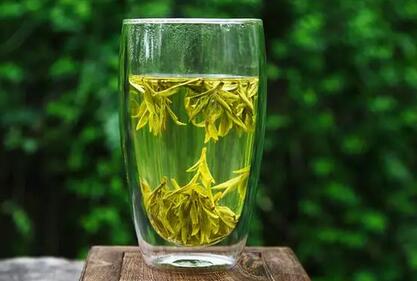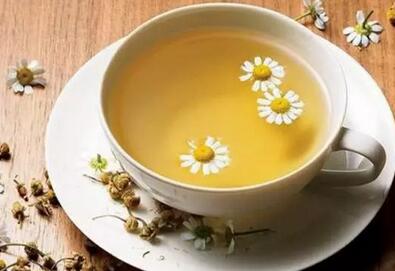Nowadays, even without stepping outside, as long as you have a phone or computer, you can stay updated on the latest happenings worldwide.
However, our vision problems have also increased. Many people spend almost all their waking hours with electronic devices, leading to a gradual decline in eyesight over time. For those who love tea, drinking three cups of tea daily can help protect vision.

Morning: A Cup of Green Tea
Regular consumption of green tea can provide some anti-radiation effects. The Shennong Ben Cao Jing lists tea among 365 medicinal herbs, stating, "Tea has a bitter taste; drinking it enhances thinking, reduces drowsiness, lightens the body, and brightens the eyes." Green tea contains potent antioxidants and vitamin C, which not only clear free radicals but also stimulate hormones that combat stress.
The small amount of caffeine in green tea can stimulate the central nervous system and boost alertness. However, it's best consumed during the day to avoid affecting sleep. Additionally, tea contains carotene, which converts into vitamin A in the intestines and liver. Vitamin A nourishes the eyes, alleviates fatigue, and prevents night blindness.

Afternoon: A Cup of Chrysanthemum Tea
Chrysanthemum has properties that clear the liver and improve eyesight. Many people brew chrysanthemum with wolfberries or add honey to chrysanthemum tea, both of which help relieve "emotional stagnation." Chrysanthemum tea is an excellent remedy for eye care.
Dryness and fatigue are common symptoms among computer and phone users. Chrysanthemum tea effectively relieves eye strain and blurred vision, making it a great solution for digital device users to protect their eyes.

Evening: A Cup of Cassia Seed Tea
Cassia seeds have properties that clear heat, improve eyesight, nourish the brain, calm liver energy, and strengthen bones. Spending hours in front of screens can dehydrate not only the skin but also cause blurry vision. A cup of cassia seed tea can help.
Cassia seeds are mildly cold in nature with a grassy aroma, offering benefits like improved vision, blood pressure regulation, and lipid balance.

When Fatigued: A Cup of Wolfberry Tea
Vitamin A, known as the "essential nutrient for eye care," prevents dryness, vision decline, and night blindness. It is abundant in carrots, green and yellow vegetables, and red dates. Vitamin B is a key nutrient for the optic nerve; a deficiency in B1 causes eye fatigue, while a lack of B2 may lead to keratitis.
Wolfberries are renowned for their liver-clearing and vision-enhancing effects. Rich in carotene, vitamins A, B1, B2, C, calcium, and iron, they nourish the liver, kidneys, and eyes. Sweet in taste, wolfberries can be brewed as tea or eaten as snacks like raisins, helping to relieve dryness and fatigue in "screen users'" eyes.

While tea offers auxiliary benefits for reducing radiation and protecting eyes, true eye care requires moderation in screen time and adequate rest for the eyes.